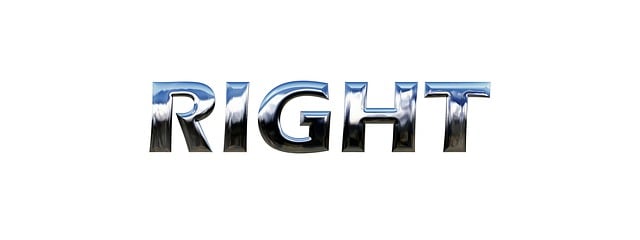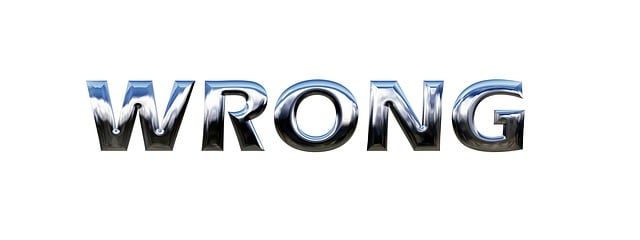Selecting the ideal business insurance requires a comprehensive understanding of your industry's unique operational risks. This involves assessing factors like liability exposure, property damage, data breaches, and employee accidents specific to your sector. By evaluating these, you identify essential coverage areas, ensuring your business is protected from financial loss and legal repercussions. Consider general liability, professional liability, property insurance, and workers' compensation, adjusting limits and deductibles based on your business's needs. Evaluate insurers' reputations, compare quotes, and review policy exclusions to make an informed decision. Regularly update your policy to reflect evolving business risks and industry standards.
Choosing the right business insurance is crucial for safeguarding your investment and mitigating risks. This comprehensive guide walks you through every step, from understanding your unique business needs and assessing potential risks, to comparing quotes and reviewing policy exclusions. Learn about different types of coverage, set appropriate limits and deductibles, and evaluate insurers’ financial stability. Discover how to customize riders, grasp the claims process, and ensure excellent customer service. Regular policy reviews are essential – stay protected with up-to-date coverage that aligns with your evolving business landscape.
Understand Your Business Needs and Risks

When it comes to selecting business insurance, understanding your unique needs and risks is the first step in making an informed decision. Every business operates differently, facing its own set of challenges and potential hazards. Whether you’re a retail store, tech startup, or service-based enterprise, assessing these factors is crucial for choosing the right coverage.
Start by evaluating your industry’s specific risks. For instance, a construction company faces different dangers than an online retailer. Consider factors like liability exposure, property damage, data breaches, and employee accidents. Understanding these potential issues will help you determine which insurance policies are essential to protect your business from financial loss and legal consequences.
Identify Different Types of Business Insurance

When it comes to safeguarding your business, understanding the various types of insurance available is paramount. The first step in choosing the right coverage is recognizing the distinct needs of your enterprise. General liability insurance, for instance, protects against claims of bodily injury or property damage occurring on your premises. This is crucial for businesses dealing with customers or handling physical assets. Conversely, professional liability (or errors and omissions) insurance is tailored to shield professionals like consultants or lawyers from claims related to their services.
Additionally, business owners should consider specialized policies such as property insurance, which covers the physical structure of your business and its contents against perils like fire, theft, or natural disasters. Workers’ compensation insurance is another essential component, providing protection for employees injured on the job. How to choose the right business insurance involves assessing these options and more, aligning coverage with specific business activities and risk profiles.
Assess Coverage Limits and Deductibles

When considering business insurance, understanding coverage limits and deductibles is a crucial step in choosing the right policy for your needs. These factors directly impact the level of protection your business receives in the event of an unexpected loss or liability claim. Coverage limits refer to the maximum amount your insurance provider will pay out under a specific policy, ensuring that your business is compensated up to this threshold in case of damage or financial loss. Deductibles, on the other hand, represent the amount you’ll be responsible for paying out-of-pocket before your insurance kicks in.
Evaluating these elements requires careful consideration. You’ll want to ensure that the coverage limits are sufficient to cover potential significant losses and that deductibles align with your business’s financial capacity. For instance, if your business faces high operational costs or has valuable assets, you may require higher limits to safeguard against substantial claims. Similarly, understanding the range of potential risks your industry faces can guide your decision-making process in setting appropriate coverage levels and deductibles, thereby facilitating a wise choice in your business insurance selection.
Evaluate the Reputation and Financial Stability of Insurers

When choosing the right business insurance, evaluating the reputation and financial stability of insurers is a crucial step. Look for companies with a solid track record and strong financial ratings from independent agencies like A.M. Best or Moody’s. This ensures they have the resources to honor their claims and are likely to remain in business over the long term. Check online reviews, talk to peers, and request references to gauge how well they stand among their customers.
Insurers with a proven reputation often reflect higher integrity and reliability. They tend to be more transparent about policy terms, offer better customer service, and provide timely payouts when claims arise. While price is a factor, don’t let it cloud your judgment. A reputable insurer offering competitive rates combined with robust coverage and solid financial backing is the ideal choice for safeguarding your business interests.
Review Policy Exclusions and Limitations

When evaluating how to choose the right business insurance, it’s crucial to scrutinize policy exclusions and limitations. These clauses detail what isn’t covered by your policy, so understanding them is essential for ensuring adequate protection. Reviewing these carefully will help you identify potential gaps in coverage that could leave your business vulnerable.
Look for specific scenarios that might not be included, such as acts of terrorism or natural disasters, which are often excluded from standard policies. Additionally, check for limitations on liability amounts and any restrictions on what constitutes a covered event. By thoroughly understanding these exclusions, you can make informed decisions when comparing different insurance plans, ultimately selecting one that aligns with your business’s unique needs.
Compare Quotes from Multiple Insurers

When selecting business insurance, one of the most crucial steps is comparing quotes from multiple insurers. This process allows you to gain a comprehensive understanding of the market and make an informed decision. Start by gathering quotes from several reputable companies, ensuring that each provides coverage options tailored to your specific business needs.
Examine the policy details closely, paying attention to deductibles, coverage limits, and exclusions. Each insurer may offer unique terms, so take the time to understand what’s included and what isn’t. Compare not just the prices but also the quality of service, claims processes, and customer reviews to ensure you’re choosing the right business insurance that aligns with your long-term goals.
Consider Additional Riders and Amendments

When navigating the process of selecting business insurance, don’t overlook the importance of considering additional riders and amendments. These customizable options can significantly enhance your policy’s coverage, ensuring that your unique business needs are addressed. By reviewing potential risks specific to your industry or operations, you can tailor these add-ons to provide extra protection for valuable assets, equipment, or liability concerns.
Knowing how to choose the right business insurance involves a careful assessment of your operational scope. Consult with your insurance provider to understand which riders and amendments best align with your business profile. This strategic approach allows you to create a comprehensive coverage package that goes beyond standard policy limits, offering peace of mind and robust protection for your investment.
Understand the Claims Process and Customer Service

When evaluating business insurance, understanding the claims process is paramount. It’s a direct reflection of an insurer’s reliability and responsiveness during challenging times for your business. Look for carriers that offer clear guidelines on filing a claim, swift response times, and a track record of efficient claim resolution. Customer service should also be a key consideration; excellent support can make all the difference in navigating unforeseen events.
Reputable insurance providers typically provide dedicated customer service representatives who are trained to guide policyholders through the claims process. This includes providing guidance on necessary documentation, answering questions, and keeping you updated throughout each step. A robust customer service approach ensures that you have a reliable partner during periods of uncertainty, which is crucial for maintaining business continuity.
Regularly Review and Update Your Business Insurance Policy

Regularly reviewing and updating your business insurance policy is a crucial step in ensuring you have the right coverage for your enterprise. As your business evolves, so do its risks, and what was once adequate coverage might not be sufficient today. Therefore, it’s essential to assess your policy at least annually or whenever there are significant changes in your operations. Look for potential gaps in coverage and consider new risks that may have emerged. This proactive approach allows you to make informed decisions about the right insurance products to protect your business assets and financial health.
When updating your policy, stay focused on how to choose the right business insurance. Evaluate your risk tolerance, industry standards, legal requirements, and budget constraints. Compare different coverage options and their costs, keeping in mind that the cheapest option might not always offer the best protection. It’s also wise to consult with an insurance broker or agent who can provide expert advice tailored to your specific business needs. Regular policy assessments ensure you maintain comprehensive coverage aligned with your business goals, protecting you from potential risks and financial losses down the line.
